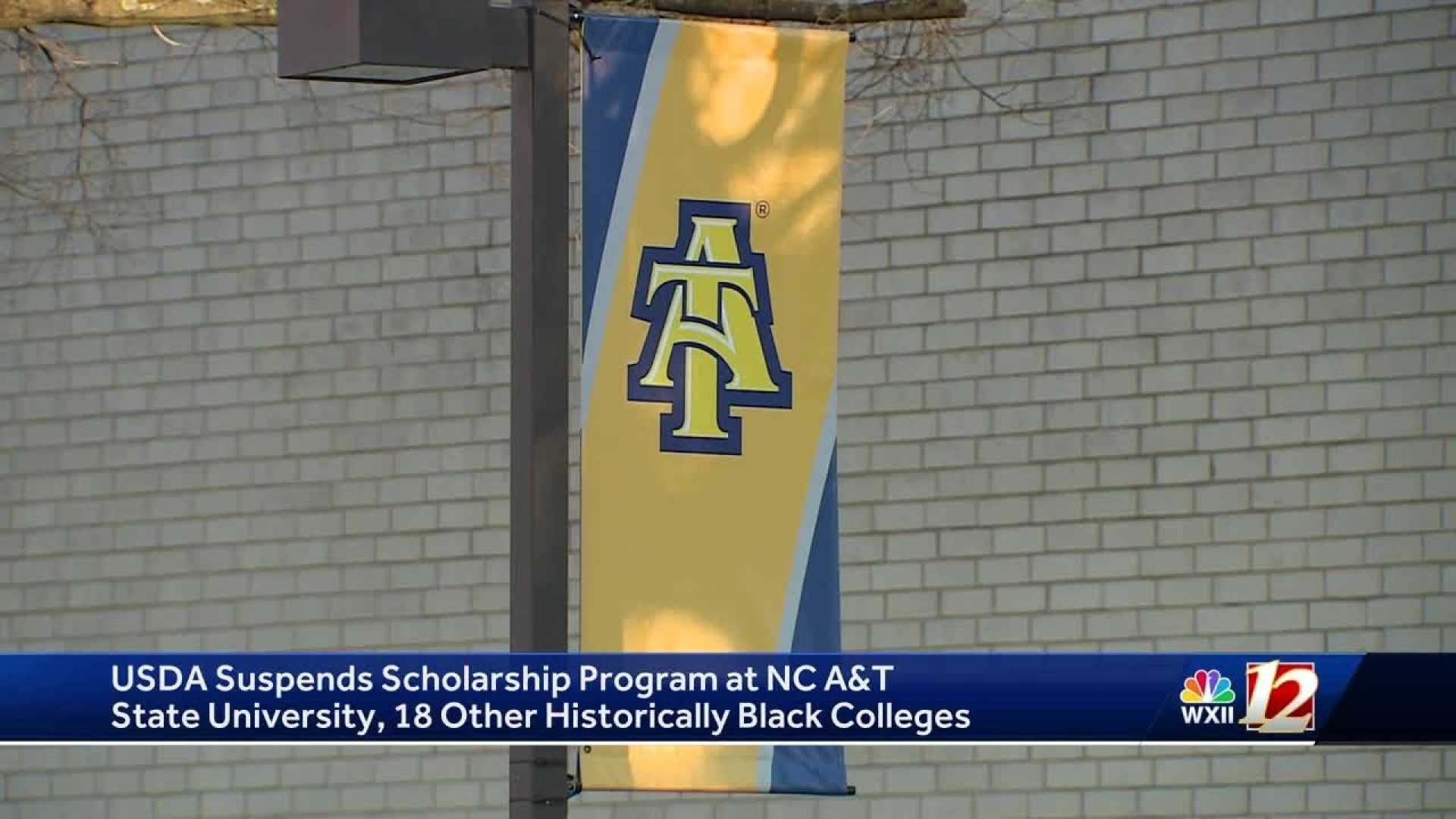Education
USDA Suspends 1890 National Scholars Program Affecting HBCU Students

GREENSBORO, N.C. — The U.S. Department of Agriculture has suspended its 1890 National Scholars Program at North Carolina A&T State University and 18 other historically Black colleges and universities (HBCUs) nationwide. This suspension has raised concerns among students who depend on the program to fund their education.
The 1890 Scholars Program, launched in 1992, offers financial support to students from rural or underserved communities, allowing them to study food, agriculture, natural resources, and related sciences. Each recipient benefits from full tuition, fees, books, room, and board. In fiscal year 2024, the USDA awarded 94 scholarships through the program.
A banner on the USDA’s website states that the “1890 Scholars Program has been suspended pending further review,” leaving many students anxious about their financial futures. Aniya Keene, a freshman at North Carolina A&T, expressed her disappointment about the suspension, stating, “The cost of tuition is really high, so you’ve got to find opportunities to pay for it. It’s concerning because now they’re left scrambling to figure out how they’re going to pay for school.”
Congresswoman Alma S. Adams, a senior member of the House Committee on Agriculture, criticized the USDA’s decision. “This is a clear attack on an invaluable program that makes higher education accessible for everybody,” Adams said. “I demand USDA immediately rescind this targeted and mean-spirited suspension and reinstate the 1890 Scholars Program.”
The suspension takes place as part of broader budget cuts and a freeze on federal grants. In recent months, the USDA and the Department of Education have faced scrutiny over funding initiatives for educational equity. The transition reflects a shift in educational policy under the current administration.
Among the 19 universities impacted are Alabama A&M University, Florida A&M University, Prairie View A&M University, and Virginia State University. These institutions have traditionally played a vital role in supporting students from marginalized communities, especially in agriculture and related fields.
The implications of the program’s suspension could be significant, not only affecting the financial stability of students but also impacting the diversity of the agricultural workforce. Advocates for HBCUs argue that programs like this are critical for fostering opportunities for African American students in fields where they have been historically underrepresented.
The program aims to correct long-standing disparities in education access and make higher education more attainable for students from underserved backgrounds. Without this critical funding, many students’ educational paths are now uncertain.
The exact timeline for the review process remains unclear, but students are encouraged to seek alternative funding sources as they wait for further updates on the program’s status.












